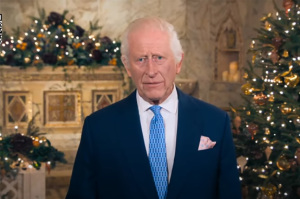U.S. to Cut Carbon Emissions With New Fuel Ecomony Standards
President Obama, with the support of top automakers, announced Friday a new plan that will increase fuel economy standards to 54.5 miles per gallon by the year 2025.
According to Obama, the idea behind the initiative is to wean reliance on foreign oil and to save the American people money. Gas prices are “killing people at the pump,” he said.
After months of dealings between the Obama administration and automakers, this fuel efficiency plan will lower American oil use by 2.2 million barrels a day over the next 15 years – saving U.S. consumers about $2 trillion in fuel costs.
"This agreement on fuel standards represents the single most important step we've ever taken as a nation to reduce our dependence on foreign oil," said Obama at a press conference.
Along with lowering oil use, this plan should cut over six billion metric tons of carbon pollution during its lifetime. The White House reported this is more than the entire amount of carbon the United States emitted in 2010.
The compromise reached with auto manufacturers, such as Ford, Honda, Toyota, Chrysler, and General Motors, requires a raise in fuel consumption average for U.S. vehicles from 25 mpg to 35.5 mpg by 2016.
According to the plan, light trucks must meet fuel consumption requirements of 30 miles per gallon.
These standards are the first of its kind on a national level and aims to both increase gas mileage and decrease greenhouse gas pollution of new cars and trucks.
Obama stated, “We’ve set an aggressive target, and the companies here are stepping up to the plate.”
Nissan Motor Co. senior vice president of administration and finance, Scott Becker, said the fuel economy plan is “extremely challenging,” but Nissan “is up to the task.”
According to Obama, these new standards will push auto companies to develop innovative hybrid technologies and ultimately create new jobs across America.
He stated, “These standards are going to be a win for consumers, for these companies, for our economy, for our security, and for our planet."





























